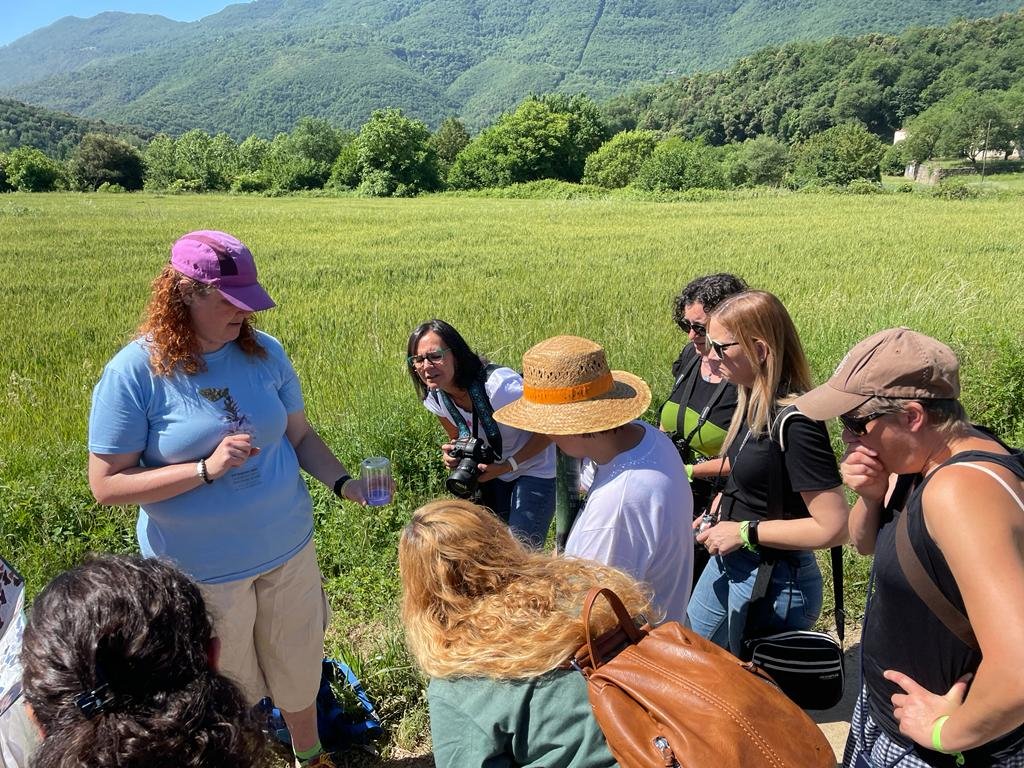Using the MEET model, the incoming travel agency Trescàlia has developed an ecotourism experience in collaboration with La Garrotxa Volcanic Zone Natural Park and Turisme Garrotxa, the tourism promotion board of the region. This 7-day itinerary entitled "Walking on the Landscape" explores the natural landscapes of La Garrotxa taking into account the conservation of the ecosystems and ensuring a minimal ecological footprint.
This has led Trescàlia to win the EUROPARC STAR Award in the Contribution to Conservation category. This award acknowledges Trescàlia's commitment to raising environmental awareness among tourists and visitors with the package created in DestiMED PLUS project using the MEET methodology for ecotourism development.
We've had the pleasure to interview Beth Cobo, the founder of Trescàlia, a travel agency born ten years ago to welcome groups of avid travellers that seek to discover the wonders of Catalonia in a sustainable way.
Congratulations on the EUROPARC STAR Award for your contribution to conservation. What does this recognition mean to you?
I am very grateful for this recognition. At Trescalia, an ecotourism travel agency in La Garrotxa, we have been working since our beginnings to promote sustainable tourism. This recognition comforts us for the work done so far, with the aim of generating a positive impact of tourism in the territory, specifically in the collaboration of conservation projects in the Natural Park of the Volcanic Zone of La Garrotxa. In addition, it helps us to position and motivate ourselves for new sustainable tourism development projects.
What makes the ecotourism experience "Walking on the Landscape" special?
When we started working together with Turisme Garrotxa, the tourism management and promotion association, and the protected natural area, we realised that we had to get involved jointly and unequivocally in developing an innovative and responsible tourism product. Working through this project consolidated the form of public-private collaboration (destination management bodies and tourism companies), provided us with the necessary resources to calculate, and thus reduce, the carbon footprint of our tourism packages, and gave us the opportunity to think about a direct collaboration project with the Natural Park. And it is precisely this collaboration that allows the tourists in our package to have an exceptional ecotourism experience: they collaborate in a conservation project of the territory, giving back in a positive way the impact of their tourist activity.
Is it possible to actively integrate conservation in a successful itinerary contributing to positively transforming the territory?
It is not easy, but I firmly believe it is. Nowadays, given the knowledge we have about climate change and how it affects different habitats, people who travel are increasingly concerned about the impact of their activity. In addition, the voluntary work that a visitor carries out in the territory also has a positive impact on the local population. It is worth remembering that when we talk about sustainable tourism, we keep in mind that the best places to visit are the best places to live. So, not only the conservation of the natural habitat is important, but also the local population and how they value their environment. For all these reasons, I believe that for regenerative tourism, we will have to collaborate more and more in coordination with conservation projects in natural areas.
How do you see the future of the Local Ecotourism Cluster behind the development of this experience?
La Garrotxa is a well-established sustainable tourism destination, through the development of the European Charter for Sustainable Tourism for 20 years. This innovative experience created by the Local Ecotourism cluster, and the European recognition of our proposal "Walking through the landscape" has led us to formulate new challenges. We are currently developing proposals for 4D experiences (de-seasonalisation, de-frequentation, increased spending and diversification) and universal ecotourism (for everyone, without discrimination based on different abilities).


